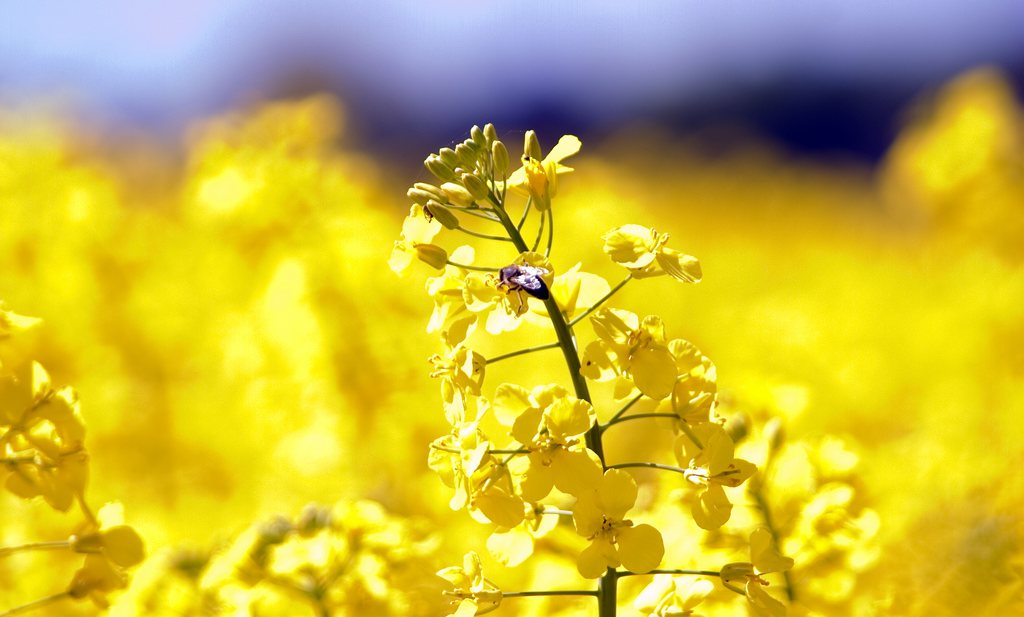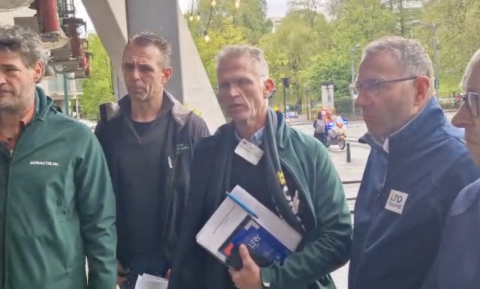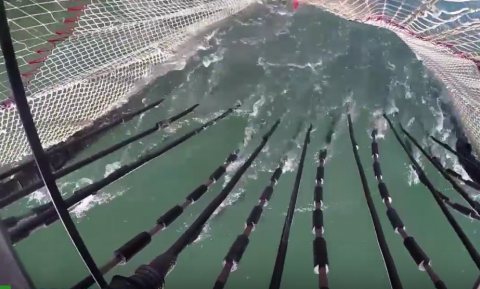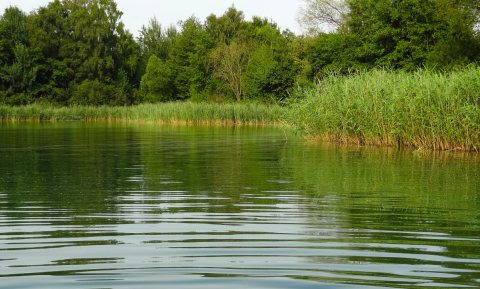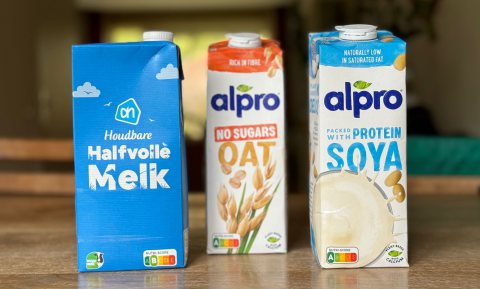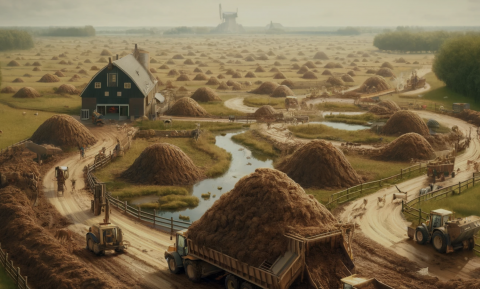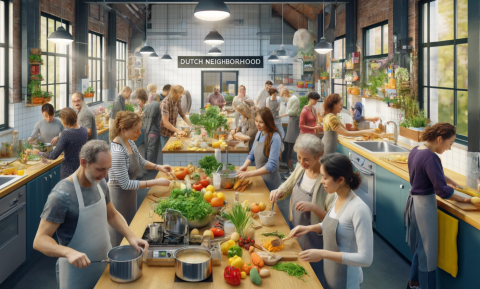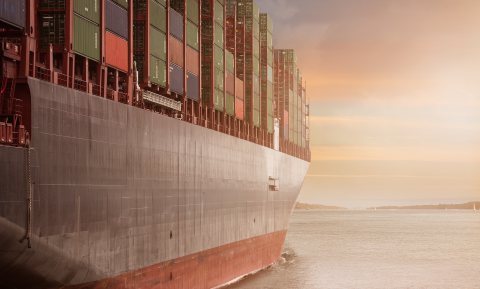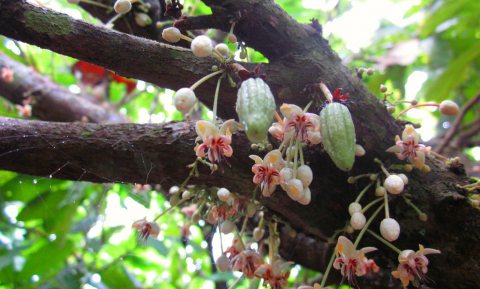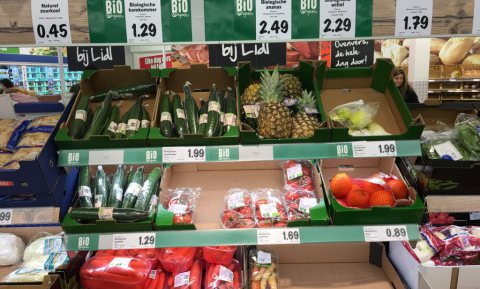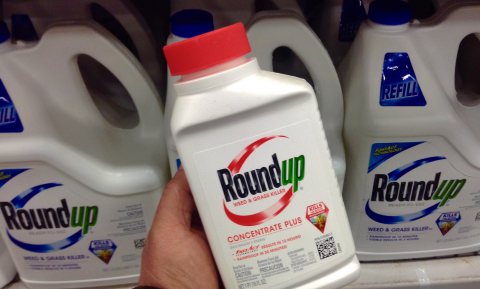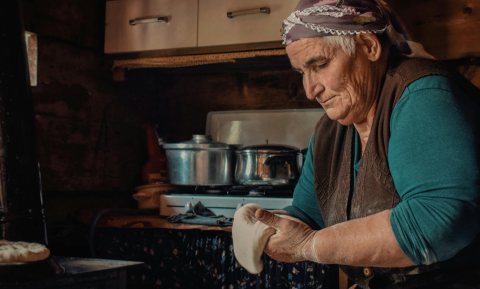Ruim twintig Masters studenten van de Radboud Universiteit (Nijmegen), afkomstig uit de hele wereld, dachten de afgelopen twee maanden na over heel uiteenlopende aspecten van voedsel in het kader van de Honours Academy. Hoe zorg je dat je er voldoende van blijft maken, dat iedereen er voldoende van kan krijgen, dat het gezond is, dat we dieren zo goed mogelijk behandelen en dat het milieu zo weinig mogelijk aangetast wordt? Je zou het voedselbeleid kunnen noemen.
We publiceren deze weken hun gedachten over verschillende onderwerpen rond voedsel. Het is uitdagend die te vergelijken met de gedachtenvorming over voedselbeleid zoals die thans in de Nederlandse Tweede Kamer plaatsvindt. Denken deze jonge mensen anders, verder of juist minder ver dan de beroepsbeleidsmakers van Nederland?
Vandaag Hadassa Moreira uit Brazilië, Master’s student Transnational Water Management. Zij vraagt zich af hoe een intensieve landbouw die in de wereld nodig is om de massa's te voeden, kan worden behoed voor het overschrijden van ecologische grenzen. Ze vindt dat de EU er behoorlijk in slaagt dat te voorkomen door het goed ontwikkelde subsidiesyteem van het Gemeenschappelijk Landbouwbeleid. Ook andere landen zouden op die manier moeten milieusparende, maar duurdere technieken kunnen toepassen. Eigenlijk vindt ze het EU-landbouwmodel een model voor de wereld.
The European Union sees itself as one of the most ambitious global players in the modern geopolitical landscape. This is the case for many policy areas, ranging from human rights to data protection. Agriculture and food are also amongst the terrains where Europe wants to make a difference in the world. In its strategy for the coming decades, the European Commission places special emphasis on several issues related to global agriculture, such as population growth, food security, water use, ecosystems health and public health, amongst other issues1.
Common Agricultural Policy
From the very start, agriculture has had an important role in the process of European Integration. In 1962, five years after the European Economic Community (EEC) was established, the Common Agricultural Policy (CAP) was launched. The CAP is perhaps the most iconic and infamous policy programme in European history. From the start, the goal of the CAP has been to ensure the competitiveness of European farmers on the global market. To achieve this goal, the programme included generous subsidies for the production and export of agricultural products, as well as high tariffs on the import of agricultural products. These measures have caused European agriculture to thrive, but have also led to a massive overproduction of products such as milk, butter, cheese and wine 2. Moreover, critics pointed out that the CAP had a negative impact on world market prices, which in turn caused a lot of harm to farmers in developing countries.
Based on these points of critique, the CAP passed through a number of reforms over the course of the last few decades. One of the topics that has grown in importance in the last few years is the topic of food safety, especially with regard to pesticides. In 2002, the EU established the European Food Safety Authority (EFSA). Headquartered in the Italian city of Parma, EFSA is an independent agency that conducts scientific research in order to provide informed advice on the topic of food safety. This topic includes both human health and ecosystem health.
Pesticides
From the very start, there has been a certain tension between the goals of the CAP and the objectives of EFSA. While the CAP seeks to ensure the vitality of European agriculture, the main goals of EFSA are to ensure safe food for European consumers, as well as the protection of ecosystem health in agricultural areas. This tension is very apparent with regard to the topic of pesticides: on the one hand, pesticides are an important tool for farmers to produce large amounts of agricultural products, but at the same time pesticide use can have a strong detrimental effect on human and ecosystem health. Over the last few years, the European Commission and the European Parliament have restricted or even banned the use of certain pesticides. However, these measures have met with a lot of resistance from European farmers. Currently, the ban of clothianidin, imidacloprid and thiamethoxam is being discussed due to the effect of these pesticides on bee populations 3.
In this context, the question arises: what keeps European agriculture competitive despite the tight regulations in the area of sustainability and food safety? And, given the European ambitions to be an example for countries and multilateral organizations in other parts of the world, a second question has to be asked: can this 'European model' be adopted by other countries, for example in the developing world?
'Sustainable intensification'
With regard to competitiveness, the answer has two elements: technological innovation and financial support. In order to replace the use of certain types of harmful pesticides, Europe invests millions of Euro's in the development of new techniques and methods to combat pests and diseases that affect crops. The key words within this policy are 'sustainable intensification'. By exploring the potential of a wide variety of techniques and ideas, ranging from the application of nanotechnology to the deployment of drones and satellite technology to improve farm management. The central conception of sustainable intensification is to boost both productivity and sustainability, thus 'doing more with less'4.
The second element of this policy is financial support: the EU continues to provide generous subsidies to farmers in EU countries. These subsidies help to keep many agricultural enterprises afloat, even if they are not competitive on the world market. The EU aims to help these farmers to adopt the technological advances mentioned above, in order to make them more competitive and decrease their dependence on farm subsidies.
'A luxury'
However, the problem with this approach is that it requires large scale investments by the public and the private sector, as well as the presence of a large and effective knowledge infrastructure. These base conditions are not present in many developing countries. Banning certain pesticides to improve food safety would therefore lead to a loss of production and competitiveness of local farmers. Unlike the EU, these countries do not have the financial means to cushion their farmers from the immediate fallout of such policies. As such, the combination of high food safety standard and highly competitive agriculture remains, at this moment, a luxury that only the EU and perhaps a handful of high income countries can afford.
But does it have to be this way? Is it possible to devise a model that allows developing countries to adopt intensive yet sustainable agricultural practices without losing agricultural production and competitiveness in the short term? Finding an answer to this question is a priority for scientists, policy makers and agricultural producers worldwide. The experiences in EU agricultural provide valuable input, but are not sufficient to solve this conundrum.
Funding
Perhaps the main issue is funding: how will developing countries finance the 'sustainable intensification' of their agricultural policies? UN institutions such as the Food and Agriculture Organization (FAO) could play a pivotal role in this matter, as well as development banks such as the World Bank, the European Investment Bank, and the Dutch Investment Bank (Financieringsmaatschappij Ontwikkelingslanden – FMO). However, the European Union could and should also play an important role in this process. After all, some of the regions most affected by the environmental degradation of agricultural land are located at the borders of Europe. For example, the agricultural lands in Northern Africa and the Middle East are under threat of desertification, leading to rising food prices and the migration of destitute farmers to urban areas. This gives rise to social tensions, which can threaten the stability of Northern African and Middle Eastern countries. It is of great importance for Europe to diminish this tension and prevent instability at its borders. Moreover, by taking the lead in devising an effective model in making global agriculture more sustainable, the EU will truly become the world leader it aspires to be.
References
1. European Commission (2010): Europe 2020: A strategy for smart, sustainable and inclusive growth. Accessed on 30/03/2018
2. European Commission (2015): Frequently Asked Questions: End of milk quotas. Accessed on 30/03/2018
3. European Food Safety Authority (2018): Neonicotinoids: risks to bees confirmed. Accessed on 30/03/2018
4. Buckwell A., Uhre A.N., Williams A., Poláková J., Blum W.E.H., Schiefer J., Lair G.J., Heissenhuber A., Schieβl P., Krämer C., and Haber W. (2014): The Sustainable Intensification of European Agriculture – A review sponsored by the Rise Foundation. Accessed on 30/03/2018
Dit artikel afdrukken
Common Agricultural Policy
From the very start, agriculture has had an important role in the process of European Integration. In 1962, five years after the European Economic Community (EEC) was established, the Common Agricultural Policy (CAP) was launched. The CAP is perhaps the most iconic and infamous policy programme in European history. From the start, the goal of the CAP has been to ensure the competitiveness of European farmers on the global market. To achieve this goal, the programme included generous subsidies for the production and export of agricultural products, as well as high tariffs on the import of agricultural products. These measures have caused European agriculture to thrive, but have also led to a massive overproduction of products such as milk, butter, cheese and wine 2. Moreover, critics pointed out that the CAP had a negative impact on world market prices, which in turn caused a lot of harm to farmers in developing countries.
Based on these points of critique, the CAP passed through a number of reforms over the course of the last few decades. One of the topics that has grown in importance in the last few years is the topic of food safety, especially with regard to pesticides. In 2002, the EU established the European Food Safety Authority (EFSA). Headquartered in the Italian city of Parma, EFSA is an independent agency that conducts scientific research in order to provide informed advice on the topic of food safety. This topic includes both human health and ecosystem health.
Pesticides
From the very start, there has been a certain tension between the goals of the CAP and the objectives of EFSA. While the CAP seeks to ensure the vitality of European agriculture, the main goals of EFSA are to ensure safe food for European consumers, as well as the protection of ecosystem health in agricultural areas. This tension is very apparent with regard to the topic of pesticides: on the one hand, pesticides are an important tool for farmers to produce large amounts of agricultural products, but at the same time pesticide use can have a strong detrimental effect on human and ecosystem health. Over the last few years, the European Commission and the European Parliament have restricted or even banned the use of certain pesticides. However, these measures have met with a lot of resistance from European farmers. Currently, the ban of clothianidin, imidacloprid and thiamethoxam is being discussed due to the effect of these pesticides on bee populations 3.
In this context, the question arises: what keeps European agriculture competitive despite the tight regulations in the area of sustainability and food safety? And, given the European ambitions to be an example for countries and multilateral organizations in other parts of the world, a second question has to be asked: can this 'European model' be adopted by other countries, for example in the developing world?
'Sustainable intensification'
With regard to competitiveness, the answer has two elements: technological innovation and financial support. In order to replace the use of certain types of harmful pesticides, Europe invests millions of Euro's in the development of new techniques and methods to combat pests and diseases that affect crops. The key words within this policy are 'sustainable intensification'. By exploring the potential of a wide variety of techniques and ideas, ranging from the application of nanotechnology to the deployment of drones and satellite technology to improve farm management. The central conception of sustainable intensification is to boost both productivity and sustainability, thus 'doing more with less'4.
The second element of this policy is financial support: the EU continues to provide generous subsidies to farmers in EU countries. These subsidies help to keep many agricultural enterprises afloat, even if they are not competitive on the world market. The EU aims to help these farmers to adopt the technological advances mentioned above, in order to make them more competitive and decrease their dependence on farm subsidies.
European agricultural policies have allowed the EU to become a world leader on food safety while simultaneously remaining one of the largest agricultural producers worldwideThe combination of technological innovation and generous financial support has helped EU farmers to cope with the negative side effects of stricter EU regulations with regard to food safety. As such, European agricultural policies have allowed the EU to become a world leader on food safety while simultaneously remaining one of the largest agricultural producers worldwide. At first glance, this policy appears to be highly successful, raising the question if this 'model' can be adopted by other countries and regions.
'A luxury'
However, the problem with this approach is that it requires large scale investments by the public and the private sector, as well as the presence of a large and effective knowledge infrastructure. These base conditions are not present in many developing countries. Banning certain pesticides to improve food safety would therefore lead to a loss of production and competitiveness of local farmers. Unlike the EU, these countries do not have the financial means to cushion their farmers from the immediate fallout of such policies. As such, the combination of high food safety standard and highly competitive agriculture remains, at this moment, a luxury that only the EU and perhaps a handful of high income countries can afford.
But does it have to be this way? Is it possible to devise a model that allows developing countries to adopt intensive yet sustainable agricultural practices without losing agricultural production and competitiveness in the short term? Finding an answer to this question is a priority for scientists, policy makers and agricultural producers worldwide. The experiences in EU agricultural provide valuable input, but are not sufficient to solve this conundrum.
Funding
Perhaps the main issue is funding: how will developing countries finance the 'sustainable intensification' of their agricultural policies? UN institutions such as the Food and Agriculture Organization (FAO) could play a pivotal role in this matter, as well as development banks such as the World Bank, the European Investment Bank, and the Dutch Investment Bank (Financieringsmaatschappij Ontwikkelingslanden – FMO). However, the European Union could and should also play an important role in this process. After all, some of the regions most affected by the environmental degradation of agricultural land are located at the borders of Europe. For example, the agricultural lands in Northern Africa and the Middle East are under threat of desertification, leading to rising food prices and the migration of destitute farmers to urban areas. This gives rise to social tensions, which can threaten the stability of Northern African and Middle Eastern countries. It is of great importance for Europe to diminish this tension and prevent instability at its borders. Moreover, by taking the lead in devising an effective model in making global agriculture more sustainable, the EU will truly become the world leader it aspires to be.
References
1. European Commission (2010): Europe 2020: A strategy for smart, sustainable and inclusive growth. Accessed on 30/03/2018
2. European Commission (2015): Frequently Asked Questions: End of milk quotas. Accessed on 30/03/2018
3. European Food Safety Authority (2018): Neonicotinoids: risks to bees confirmed. Accessed on 30/03/2018
4. Buckwell A., Uhre A.N., Williams A., Poláková J., Blum W.E.H., Schiefer J., Lair G.J., Heissenhuber A., Schieβl P., Krämer C., and Haber W. (2014): The Sustainable Intensification of European Agriculture – A review sponsored by the Rise Foundation. Accessed on 30/03/2018
Nog 3
Je hebt 0 van de 3 kado-artikelen gelezen.
Op 5 mei krijg je nieuwe kado-artikelen.
Op 5 mei krijg je nieuwe kado-artikelen.
Als betalend lid lees je zoveel artikelen als je wilt, én je steunt Foodlog
Lees ook
